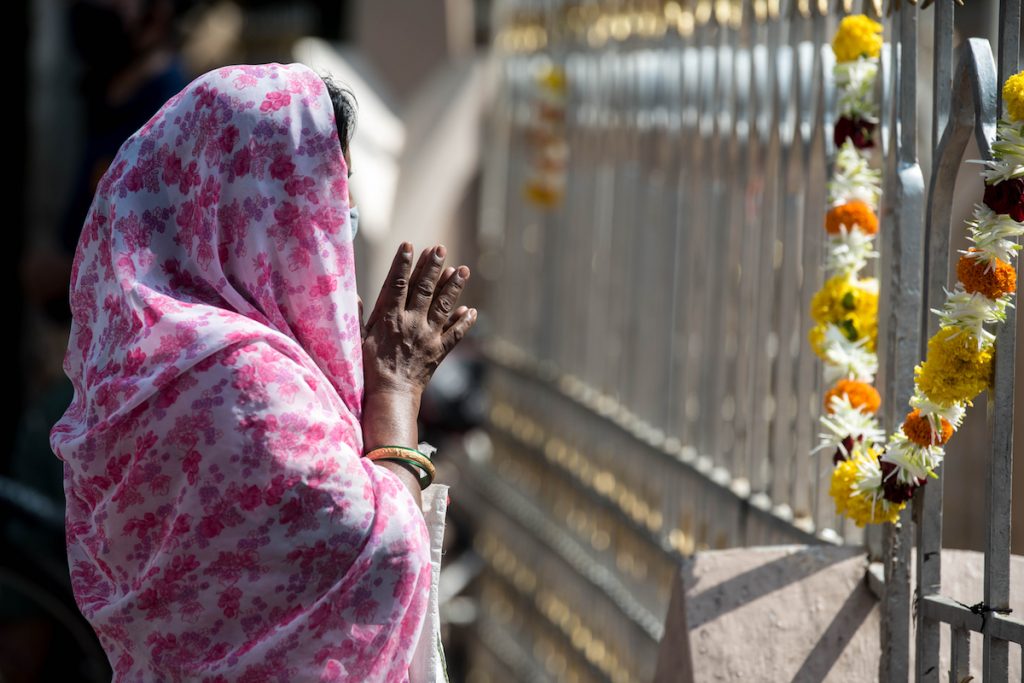New anti-conversion laws in several Indian states will result in the further harassment of minorities, a church leader has said while adding that ‘love jihad’ accusations made against Christians are false.
Archbishop Leo Cornelius of Bhopal said the Madhya Pradesh state’s Jan. 9 approval of an ordinance entitled the Madhya Pradesh Freedom of Religion Ordinance 2020 goes against India’s constitution.
“This goes against constitutional principles and freedoms, and is a plan to systematically harass minorities, especially Christians,” Archbishop Leo Cornelius told AsiaNews. “This is not a new law; it has existed since 1968 and modified in 2006 and now they have tightened it up to make it more stringent.”
According to Article 25 of the country’s constitution, Indian citizens are given the freedom to profess, practice, and propagate the religion of their choice
Rights group International Christian Concern (ICC) said the ordinance is considered by lawmakers to be the most stringent anti-conversion law in India. ICC claims that hard-line Hindu nationalists have used the specter of mass religious conversions to Christianity as justification to pass laws limiting religious freedom.
‘Love jihad’
Madhya Pradesh is led by the Hindu-nationalist Bharatiya Janata Party (BJP), as is Uttar Pradesh which also passed an anti-conversion law November last year. The law was labeled the ‘love jihad law‘ by some Indian media, a term also used by hard-line Hindu groups to infer that Muslim and Christian men seek to marry Hindu women in order to convert them.
“This ordinance (now law) was brought in on account of love jihad, which is specifically aimed at the Christian minority. There is no data to prove love jihad. This is driven by politics, not by evidence, and now they have these laws,” Archbishop Cornelius said.
“It appears that the political leaders of Madhya Pradesh and Uttar Pradesh are in competition with each other to please their ‘political supremo’ and shine in the eyes of their political masters,” he said.
“People have been accused, but none of this can be proven in court. For Christians in particular, if they gather for family or community prayers, where there is singing, etc. an extremist group can interrupt the prayers, while another goes to the police to file a case of fabricated conversions against Christians.”

Falsely accusing Christians
ICC said that the Madhya Pradesh Freedom of Religion Ordinance 2020, individuals seeking to change their religion will need to apply to the district administration 60 days in advance. Religious leaders facilitating religious conversions would also need to inform the district administration 60 days in advance. If the previsions of the ordinance are not followed individuals could face a sentence of three to five years in jail and a financial penalty of 50,000 rupees.
The ordinance also criminalizes forceful religious conversions with a jail term of one to five years’ imprisonment and a fine of 25,000 rupees (US$ 340). Section 3 of the ordinance increases these punishments to two to 10 years’ imprisonment and a fine of 50,000 rupees for individuals forcefully converting minors, women, or individuals belonging to a so-called scheduled caste or scheduled tribe.
Other BJP-led states, including Assam, Karnataka, and Haryana, have made similar pledges to enact laws to regulate religious conversions and criminalize fraudulent religious conversions.
ICC said that anti-conversion laws currently enacted in states, including Odisha, Arunachal Pradesh, Chhattisgarh, Gujarat, Jharkhand, Himachal Pradesh, and Uttrakhand, are widely abused. The rights group said hard-line Hindu nationalists abuse these laws by falsely accusing Christians of forcefully converting individuals to Christianity to justify harassment and assault. Local police often overlook violence perpetrated against Christians due to the false accusation of forced conversions, ICC said.
To date, no individual has been convicted of forced conversion in India. This is in spite of the fact that some of the anti-conversion laws have been on the books since 1967, the rights group added.
The US Commission for International Religious Freedom, an independent body dedicated to protecting freedom of religion, has recently recommended India to be listed as a “country of particular concern.”
United Nations officials have recently raised concerns over what they describe as “the growing trend of violence towards religious minorities” in the country.
Christians make up 2.3 percent of India’s population of more than 1.3 billion of whom some 80 percent are Hindu. There are about 200 million Muslims in the country.